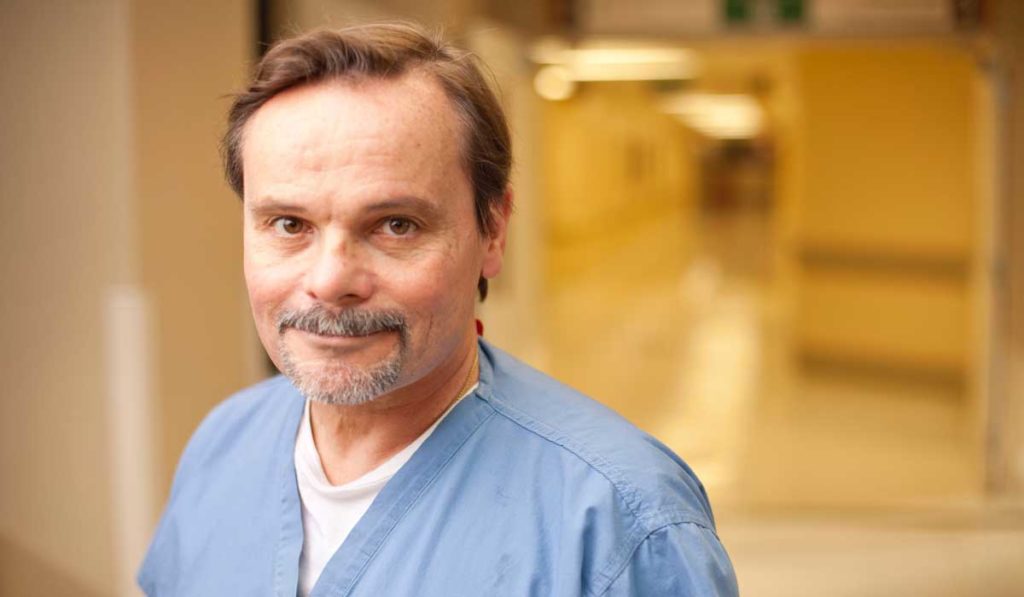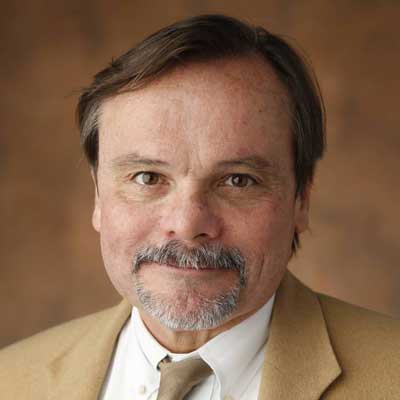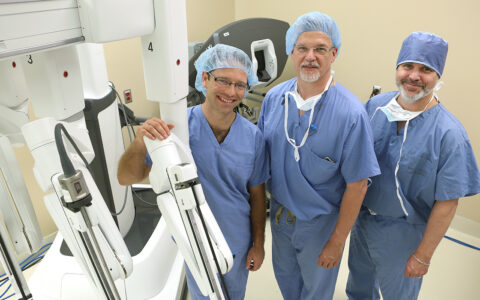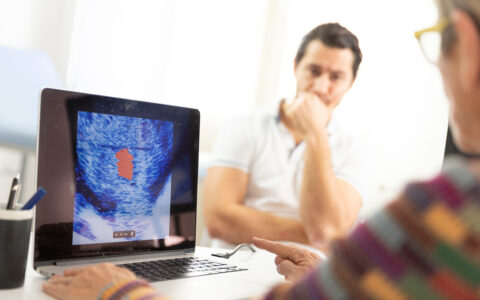Roger Dmochowski, M.D., is the associate surgeon in chief at Vanderbilt University Medical Center and the 2020 president of the American Board of Urology. Discoveries recently talked with Dmochowski about the impact of COVID-19 on urology training, patient care and research.
Impact on Resident Training
Discoveries: COVID-19 has brought a profound disruption in medical education and training. What is the American Board of Urology doing at the national level to ensure urologist certification continues?
Dmochowski: The board has made real structural and functional changes in response to the virus. Assessment of adequacy and integrity of urologic care requires that those who are moving forward in this annum submit a log of surgical interventions. [We’ve] seen substantial impact on both inpatient and outpatient care delivery, so the institutions that oversee residency training have had to look at the effect of the virus on the number of cases or procedures trainees have done and make allowances.
In urology, this was a time-based requirement stated in months. [Residents] haven’t been able to satisfy this because of restrictions in their health care facilities, so there have been a lot of ‘just-in-time’ corrections for this year. One thing we’ve done is change the requirements for merits logged, taking into account that surgical experience will not be able to directly parallel prior years’ experience because many residents have lost from six weeks to three months.
Frankly, in some parts of the country where the virus is going to have an impact into next fall, this will impact next year’s residents.
“Surgical experience will not be able to directly parallel prior years’ experience because many residents have lost from six weeks to three months.”
Converting Continuing Education
Discoveries: How has continuing education been impacted?
Dmochowski: Because travel has been curtailed, annual meetings – both national and subspecialty – have been canceled. That really changes things because many people [plan] on attending meetings and getting CME credits. We’ve converted a lot of the CME requirements to virtual.
Also, once every 10 years, there’s a urologic knowledge base exam and all the elements that lead into that exam have been delayed. All of the materials that were supposed to be submitted in April are now not due until October in an effort to give people time when they have so many other pressures.
Safety and Clinical Practice
Discoveries: What has been done to protect Vanderbilt trainees?
Dmochowski: Vanderbilt is one of the highest volume hospitals in the country for urologic surgical procedures. One of our biggest questions as we’ve resumed surgery has been, ‘What are we doing to protect the urologist and those who care for patients in the outpatient and acute settings?’
At one point here, all students were excused from patient care to prevent spread of infection. The specialty trainees were working markedly diminished hours. A variety of alternating exposures and other restrictive steps were successful – we had very few work-related exposures.
Discoveries: What will urology practice look like six months or a year from now?
The message is that for the foreseeable future, we’re going to have to stay the course and practice in parallel with this virus. Even if we start seeing reduced loads, we will continue with restrictions until we know that we’re not going to see a threat of resurgence in fall or winter.
Sustaining Research
Discoveries: Has COVID impacted the research enterprise?
Dmochowski: Clinical trials have certainly been impacted. [At Vanderbilt] there has been less activity because patients weren’t coming into the hospital. It is starting to pick back up. Patient perception of the facility’s safety is critical – we are communicating continually around what we are doing to protect the public’s safety.
Vanderbilt has implemented a robust outreach campaign to publicize all the safety stopgap measures we are taking. Our experts have done tremendous work conveying to the public and to community physicians that it is safe to come in for chronic conditions, interventions and clinical trials.





